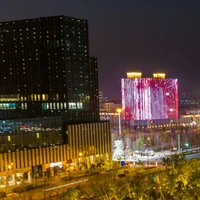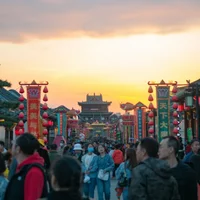Research

The LSE-Fudan Global Public Policy Hub engages in collaborative research with Fudan University, across LSE and with other world-class research institutions. We work on health, climate, pensions and other government policies for China and other countries, with a particular focus on the non-Western world
2025

Demystifying Chinese agricultural investments in Zambia.
Media coverage of Chinese land investments in African agriculture often echoes narratives of a “weak African state” and a “Chinese land grab.” In a piece for The Conversation, Yuezhou Yang challenges this view, showing that Chinese land grabbing is a myth. Instead, Chinese investors have preferred different investment models according to the specific rules of land access, transfer and control of the three land tenure systems in Zambia.
Read Here.

Dr.Yuezhou Yang published a paper in the World Development on the varieties of Chinese capital in African agriculture. This study investigates the interplay between the agency of different types of Chinese investors and the land tenure institutions in Tanzania and Zambia. It conceptualises three distinct types of Chinese investors – cooperative competitors, flying geese, and footloose opportunists — each characterised by unique drivers and objectives for internationalisation. It further theorises how these investors navigate, adapt to, and improvise within the constraints of host-state land tenure systems.

Politics of rural land acquisition in Africa: The evidence from Chinese agricultural investments in Tanzania and Zambia
Dr. Yuezhou Yang published a paper in the Journal of Rural Studies on the Politics of rural land acquisition in Africa. This paper contributes to recent scholarship that emphasizes the important and nuanced role of domestic institutions in shaping foreign land investment by systematically analysing how subnational land tenure regimes shape the locational choices of Chinese agricultural investments. The findings reveal nuances in land politics in the process of rural land acquisitions in Africa, which put the land grabs and dispossession narrative in question.
Read the full article Here.

Urban climate action plans in the global South: institutional responses against climate change
Research fellow, Dr Deshpande presented her research on Urban climate action plans in the global South at the Royal Geographical Society Annual conference on 28th August 2024 in London, UK. Engaging with the wider climate adaptation discourse, the paper shared the realities of heat norms and its implementation challenges in the global South, particularly the Indian sub-continent.
The paper was presented as part of the ‘Mapping the Landscape of Adaptation Research’ session organised by the LSE Grantham Research Institute (GRI). The session comprised of climate experts -Anna Beswick, Candice Howarth, Darren Clarke, Declan Conway, Denyse Cookie, Joe Feyertag, Johanna Nalau, Johannes Honneth, Kate Gannon, Sara Mehryar and Tanvi Deshpande- working on adaptation issues in diverse international contexts.

Municipal capacities and institutional responses in the age of climate uncertainties
Dr Deshpande’s article titled ‘Municipal capacities and institutional responses in the age of climate uncertainties’ was published in the Earth System Governance journal. The article explores how Indian municipal governments, operating with weak governance capacities, improve their capacity to pursue contextual climate policies. The study unpacks the internal dynamics of the state at the city level, by tracing the evolution of a climate policy idea through policymaking processes and its influence on decision-making capacity. In theorising from and for the global South, the study highlights the influence of endogenous factors on municipal decision-making capacity that enables urban climate action in the global South.

Take my data': US 'TikTok refugees' flock to alternative Chinese app
Professor Bingchun Meng, Director of the Hub, was interviewed by AFP for her views on US "TikTok refugees" migrating to Chinese social media platform Xiaohongshu in anticipation of the likely ban on TikTok.

The Future of UK-China Relations: Key Takeaways for the Next Five Years
The Roundtable on the Future of UK-China Relations brought together a diverse set of academic, business and policy stakeholders to discuss and build understanding about the complex and shifting nature of the UK-China relationship in the second half of the 2020s.
Hosted by the LSE-Fudan Global Public Policy in London, UK on December 12, 2024, the closed-door session under Chatham House rules, discussed the future of three key strategic facets for UK-China relations: (1) economic trade; (2) technological and research collaboration; and, (3) global peace and security initiatives.
The key takeaways from this discussion are outlined HERE












